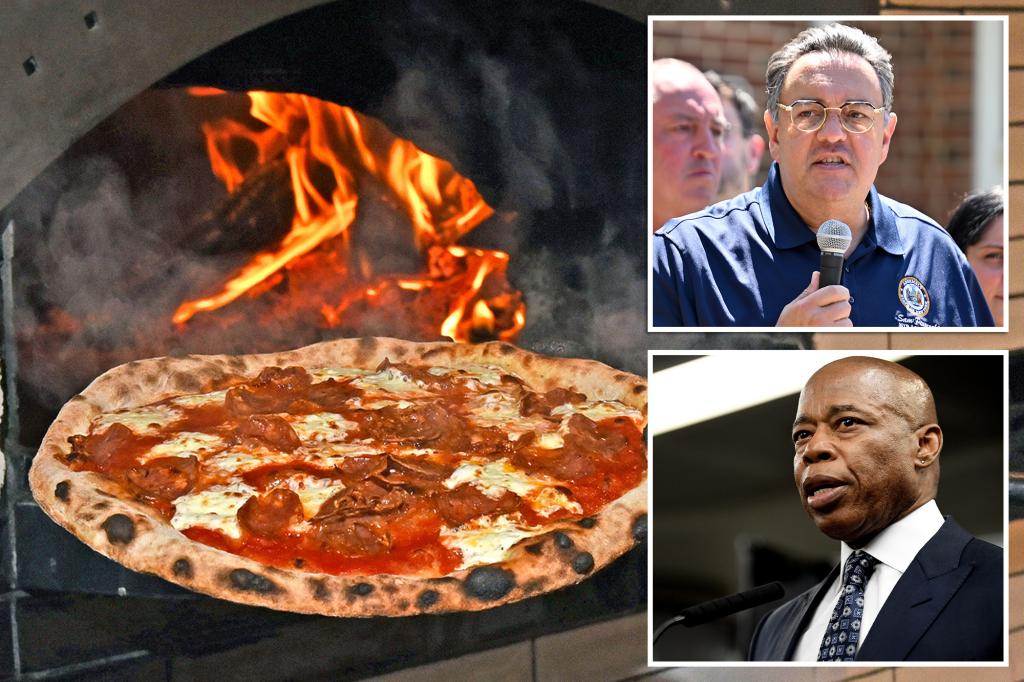Assemblyman Sam Pirozzolo is advocating for a new bill, the “Preserving Our Culinary Traditions Act,” which would exempt pizzerias and matzah-makers in New York from a city rule that requires them to cut emissions from their wood- and coal-fired ovens by 75%. Pirozzolo argues that these regulations unfairly target ethnic restaurants and disrupt their traditional cooking methods. He believes that instead of focusing on restricting businesses, the city should prioritize addressing more pressing issues such as crime, drug overdoses, and the migrant crisis.
The city’s Department of Environmental Protection has implemented a new rule that mandates existing coal- and wood-fire eateries to install costly air filtration systems that would reduce the emissions coming from their ovens. The enforcement of this rule stems from a 2015 law passed by the City Council and former Mayor Bill de Blasio aimed at curbing harmful emissions that contribute to respiratory illnesses like asthma. However, Pirozzolo criticizes these regulations for being anti-business and claims they do little to address actual pollution concerns.
Pirozzolo’s bill would waive the restrictions on burning wood, coal, natural gas, propane, or other fuels for cooking purposes, allowing these traditional cooking methods to continue without facing stringent pollution regulations. The assemblyman argues that preserving the culinary traditions of New York City is essential and should not be hindered by costly compliance measures that burden business owners. He is seeking support for his bill in the state Senate and has received attention for his advocacy on behalf of these businesses.
To assist pizzerias in complying with the new air filtration requirements, another lawmaker, Brooklyn city Councilman Justin Brannan, is considering tax breaks that would help offset the cost of purchasing the necessary equipment. These filtration systems can be expensive, with some businesses already having spent tens of thousands of dollars to meet the city’s regulations. By offering tax relief, the city aims to support these establishments in adapting to the new environmental standards without causing financial strain.
Pirozzolo’s efforts to protect ethnic eateries and uphold their cooking traditions have garnered attention and support from other legislators. He emphasizes that these businesses play a significant role in New York City’s diverse culinary landscape and should not be unfairly targeted by regulations that restrict their cooking methods. By exempting these establishments from stringent emission requirements, the bill aims to preserve the authentic flavors and aromas of ethnic dishes while also alleviating the financial burden on business owners. Ultimately, the debate over environmental regulations for wood- and coal-fired ovens highlights the complexity of balancing environmental concerns with the preservation of cultural traditions in a diverse urban setting like New York City.


